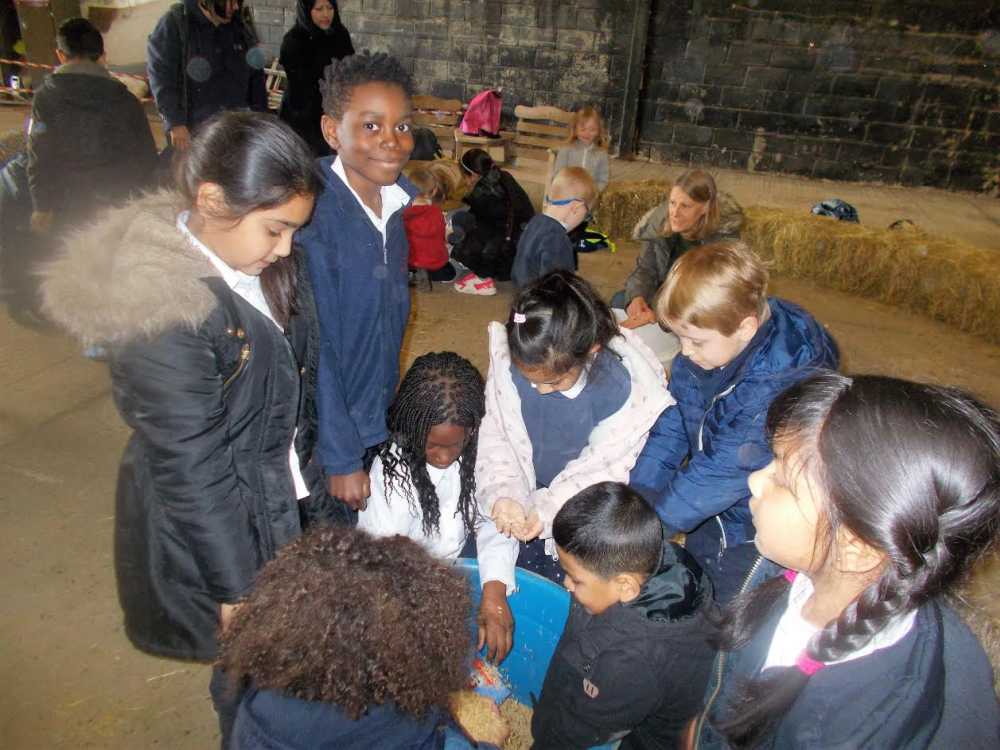
Education charity The Country Trust has helped brought the working countryside alive for nearly 25,000 disadvantaged primary school children through day visits to real working farms.
Specialist school caterers Caterlink have helped the charity. They provide the lunches for schools with a focus on local, seasonal food wanted to help the children understand where the food on their dinner plates really comes from.
The visits have meant that for many city children, who have never ventured further than their immediate London streets, they have experienced the sights, sounds and smells of a farm and country life for the very first time.
Children from Kentish Town Church of England Primary School and Brecknock Primary School went to Clothall Bury Farm in Hertfordshire where they learned about the wheat growing on the farm, as well as other types of grain.
They had a tour of the farm including walking through a bluebell wood in full bloom.
Field to fork
All the children got to climb into the cabin of a tractor and were told about the different types of machinery used on the farm to help grow the crops.
At Chatham Green Farm in Essex, children from Holy Trinity Primary School explored some of the vast wheat fields on the farm and were able to follow the story of field to fork by making and eating their own flatbread.
The final part of the day was enjoying a bug hunt in a nearby field, bringing to life the importance of biodiversity to farming.
Carl Brennan, Class teacher at Brecknock Primary School said: “I would highly recommend the experience for children of this age, particularly those in London schools who do not have the chance regularly to immerse themselves in nature!”
New research has revealed that a third of children are not aware that milk comes from cows, and two fifths think cows drink milk rather than produce it.
